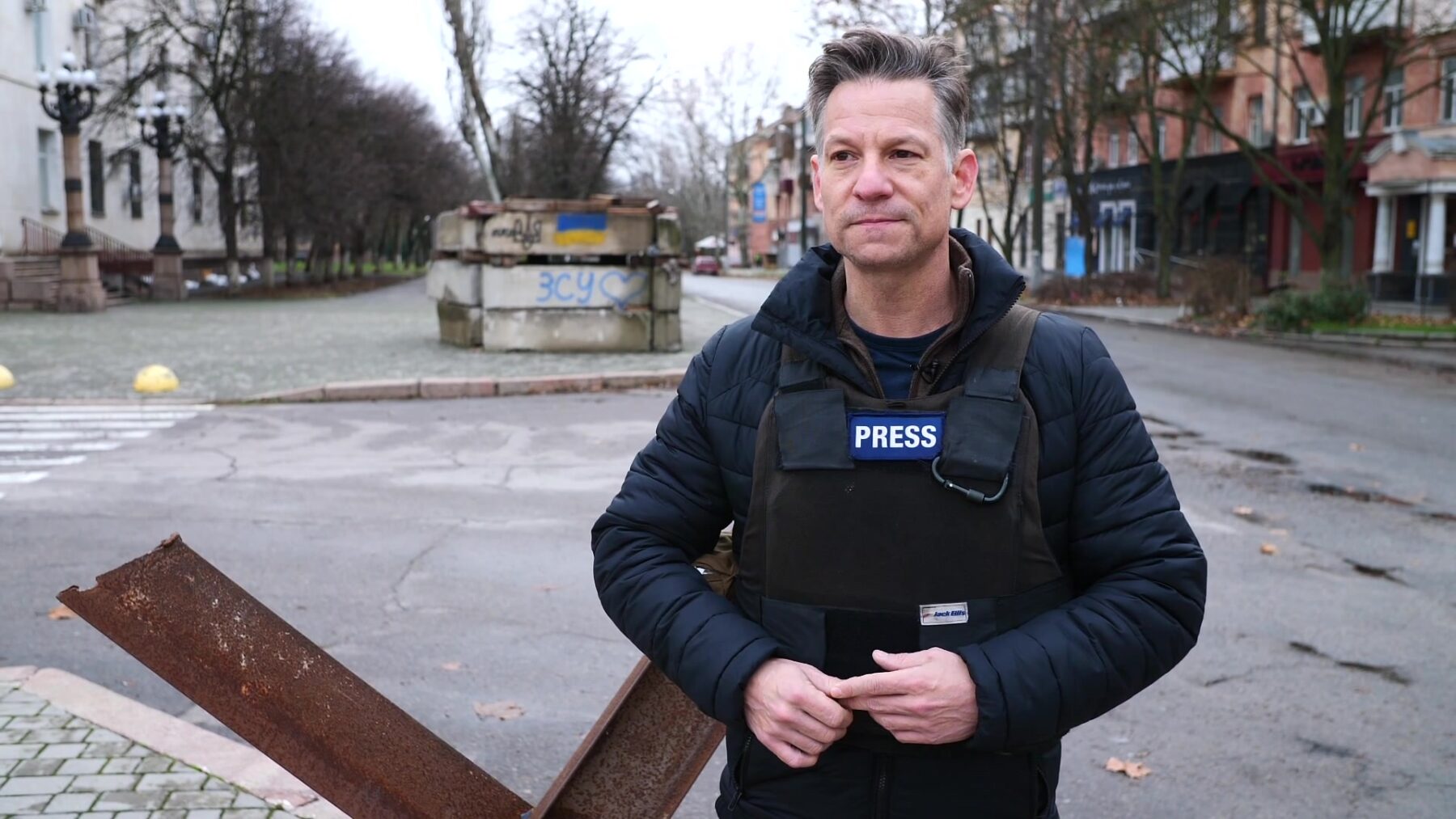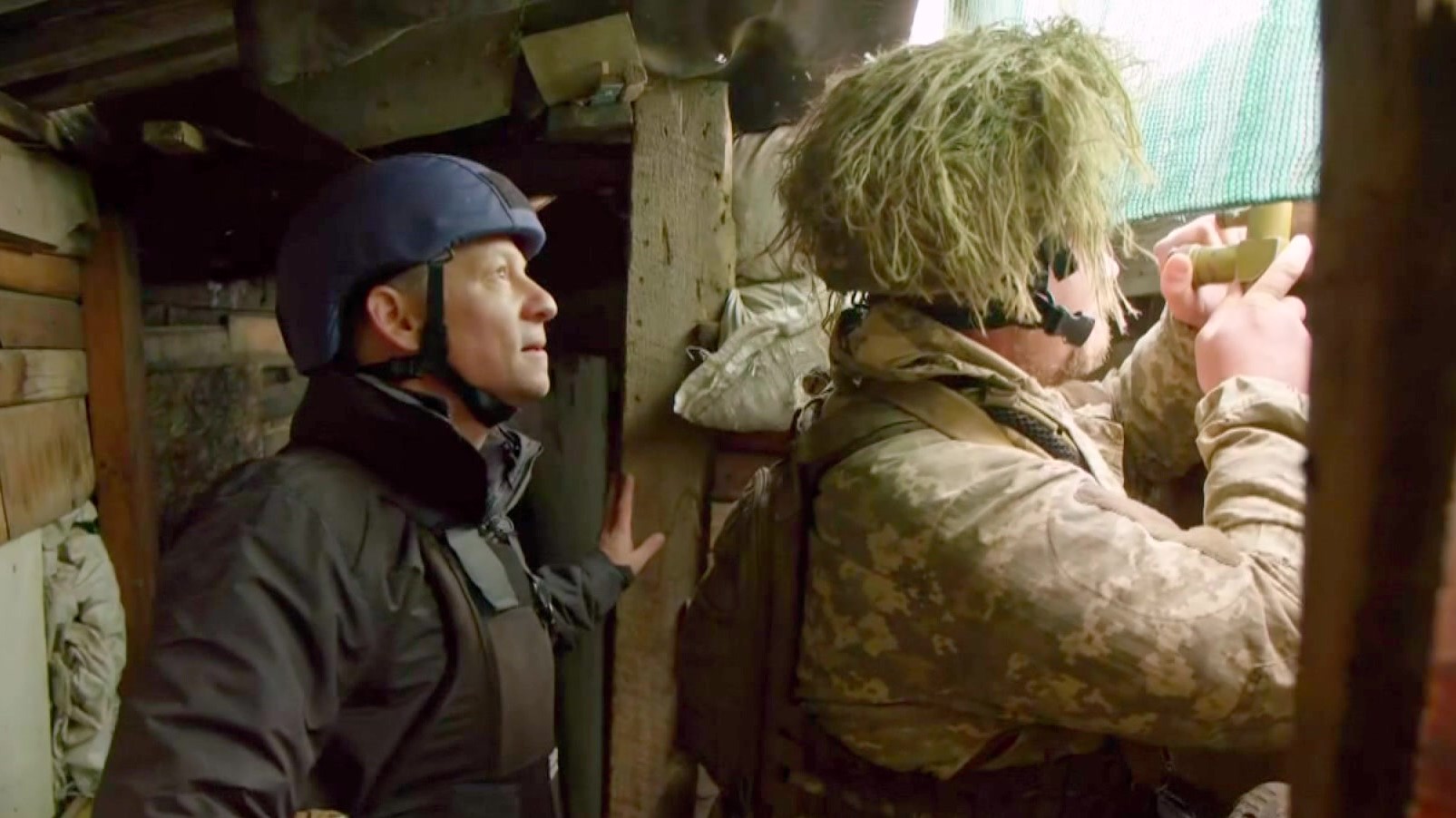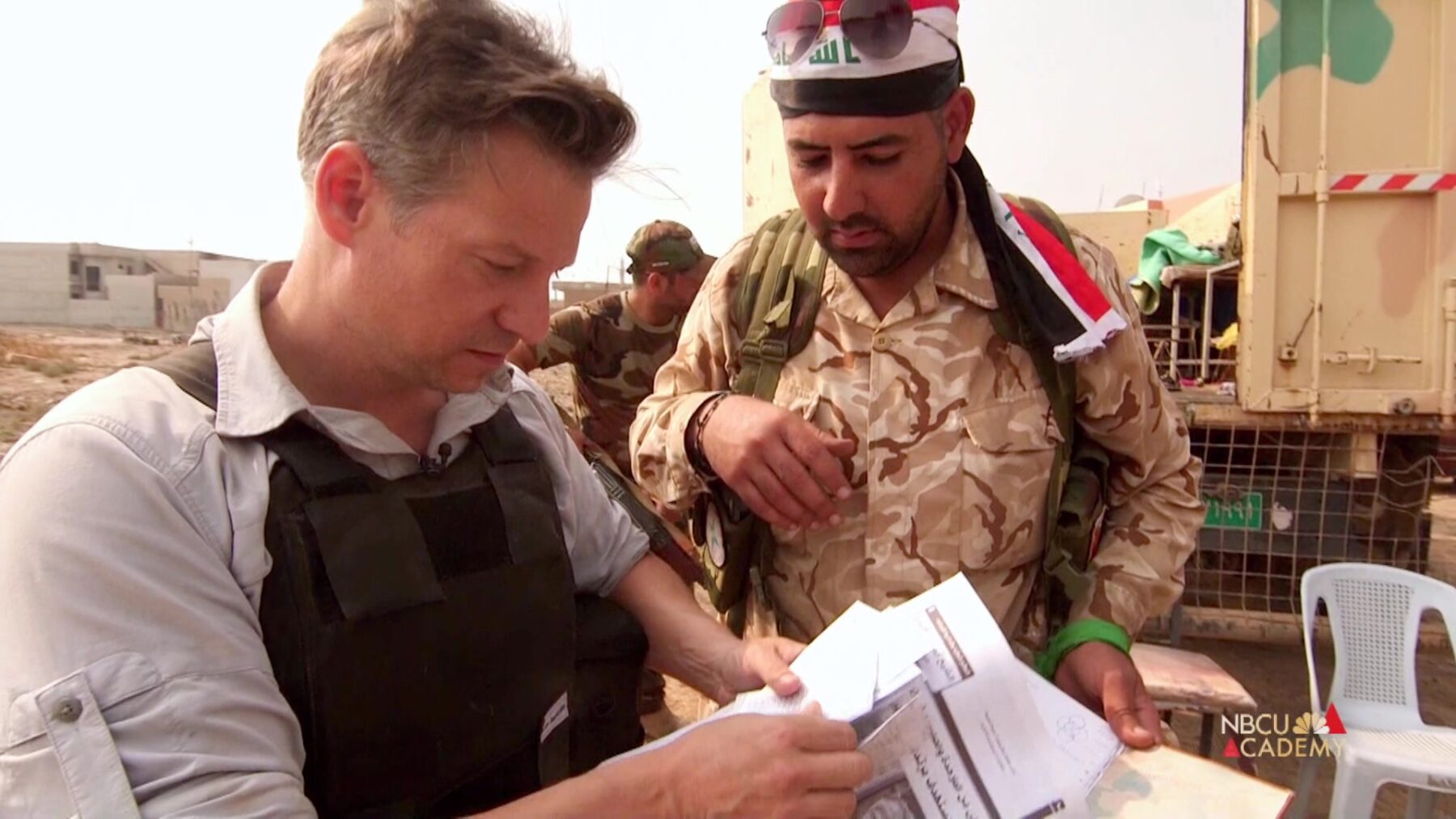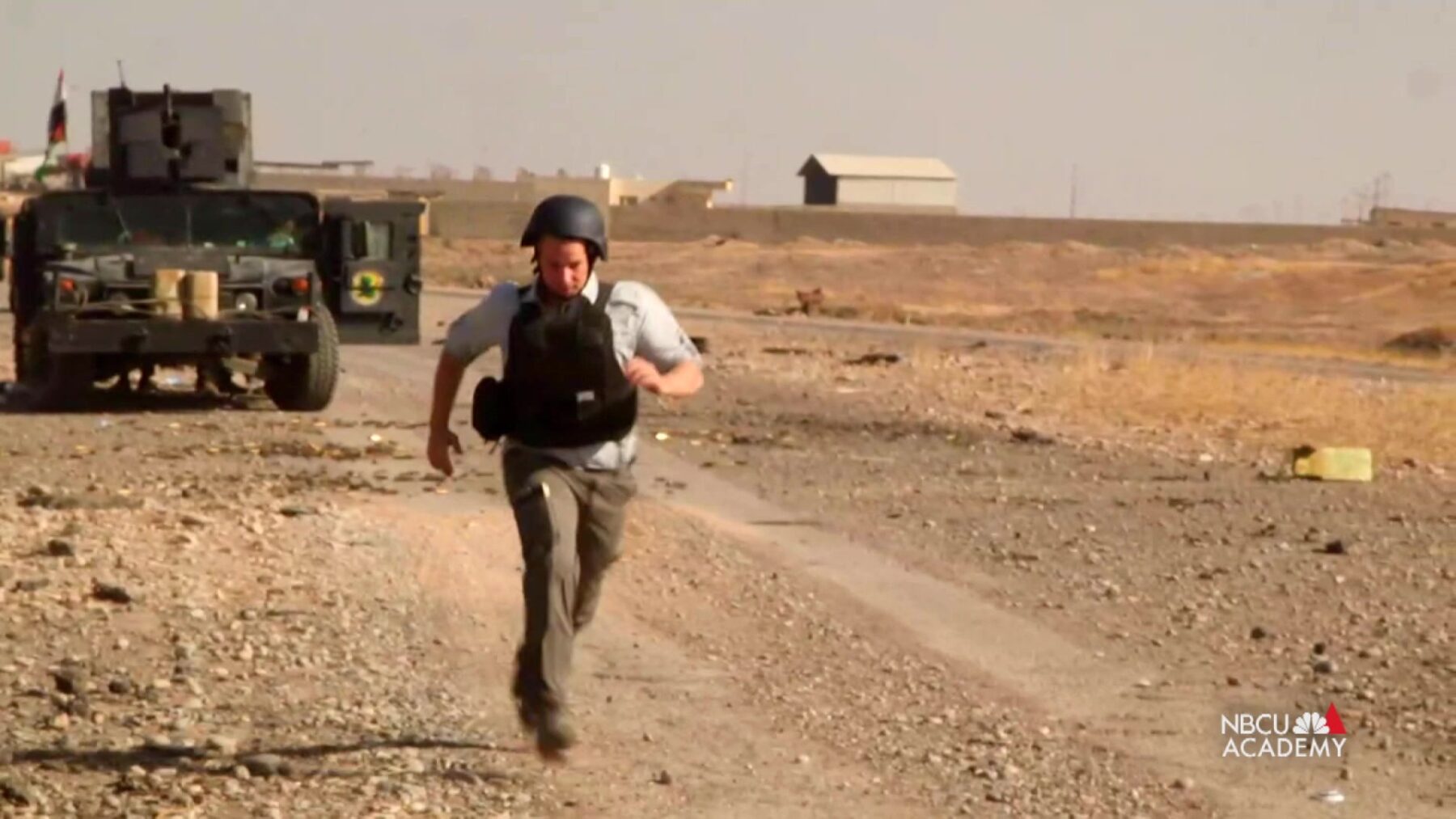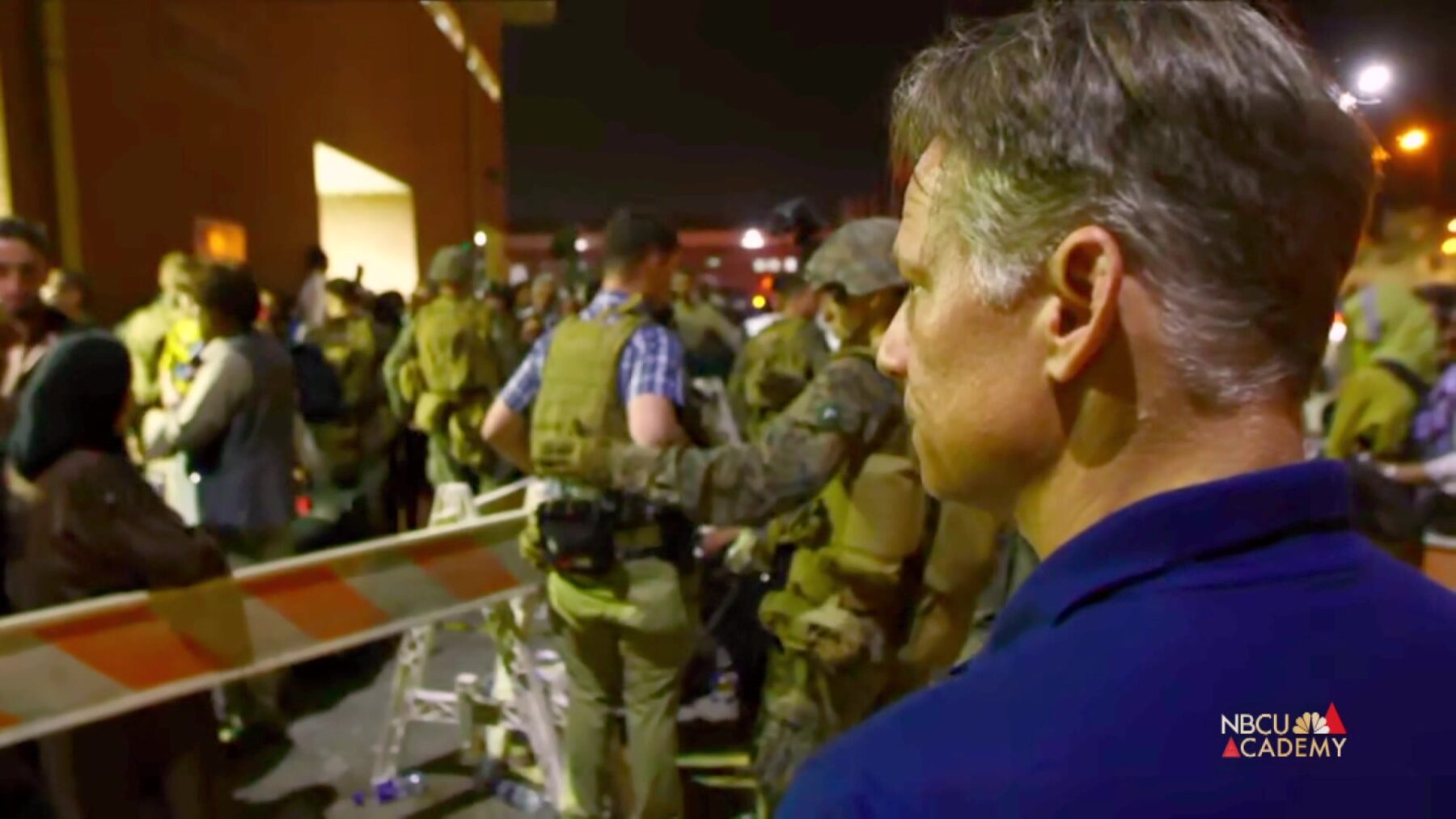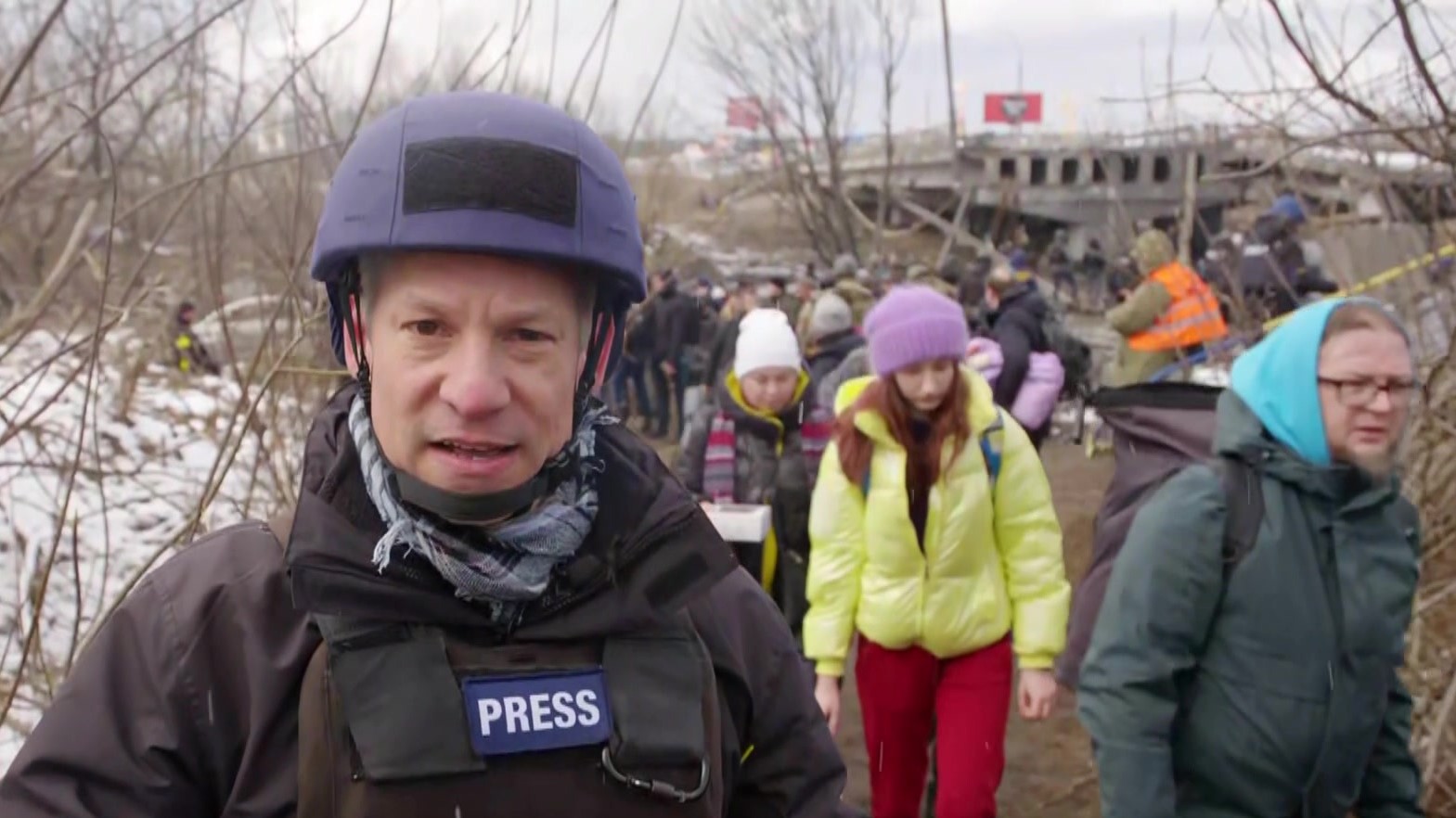NBC News Chief Foreign Correspondent Richard Engel discusses what it takes to be a war reporter. The following is a transcript of his comments, lightly edited for conciseness.
The dangers and advantages of being a war reporter
When you’re reporting in a war zone, you don’t have the luxury of showing up and going wherever you want. You need to ask yourself, “Is it safe enough to go there?” If you determine it is, and it’s possible to get there and back in one piece, then you go.
The great advantage to going to frontline areas as a war reporter is that you can talk to people who are directly involved. It’s not hearsay. You’re talking to people who were involved or were witnesses to a battle or a mass grave following human rights abuse.
Traversing on-the-ground reporting
Whenever possible, don’t go alone. Use local knowledge, find a local fixer, local contacts and a guide who can help you on the roads.
Often if there’s a conflict or there’s just been an attack, the roads are going to be disrupted. Traffic is going to be different, if there’s any traffic at all.
Find someone who can get you there, help you gather information and help get you out safely.
It’s easy to figure out whom to talk to first. Speak to the people who have the most firsthand information: witnesses, participants, people who were there. Otherwise, why bother coming to a frontline location or coming to a conflict zone? We’re not working the phones. You can do that without coming to a place where bombs are falling and artillery is exploding.
You’re here so you can immediately see what happened. You can talk to people who are directly impacted, whether they are refugees, soldiers or victims of war crimes, and hear what they have seen. You can hear their stories in the place where the incidents took place.
Earning the respect of your sources
To maintain sources, you have to earn their respect. Show them that you not only care about them and their story but know something about it. You have to seem credible and look like you’ve done your homework. You have to understand the dynamic and politics of the location.
If you show you’re knowledgeable, compassionate and driven to tell the story as accurately as possible, sources tend to respect you, will want to work with and continue working with you. The more they respect you and the more respect you show them, the better your information will be and the better sources they become.
It’s the oldest, and I would say, the purest form of journalism you can find. You’re not picking up tidbits online, second- or third-hand accounts that you may have been told, or rumors you may have picked up along the way. You’re going to the scene at some risk to yourself and your team in order to find firsthand information. It’s the best way of doing it.


